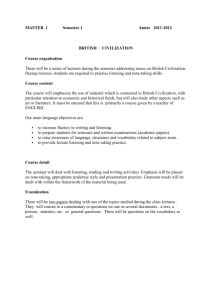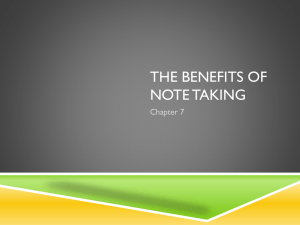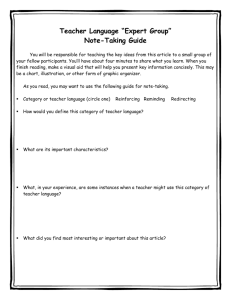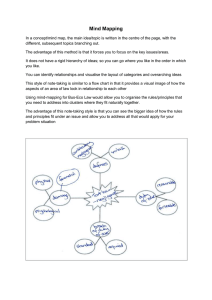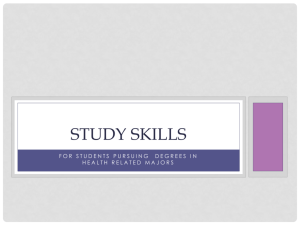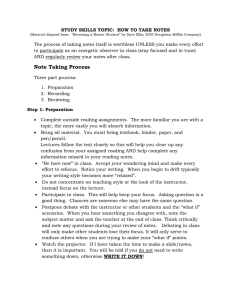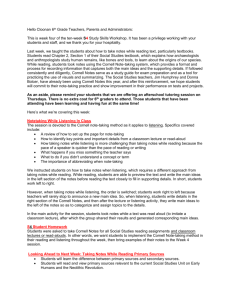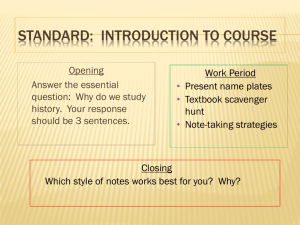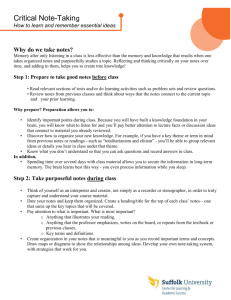Cornell Method of Note-Taking
advertisement
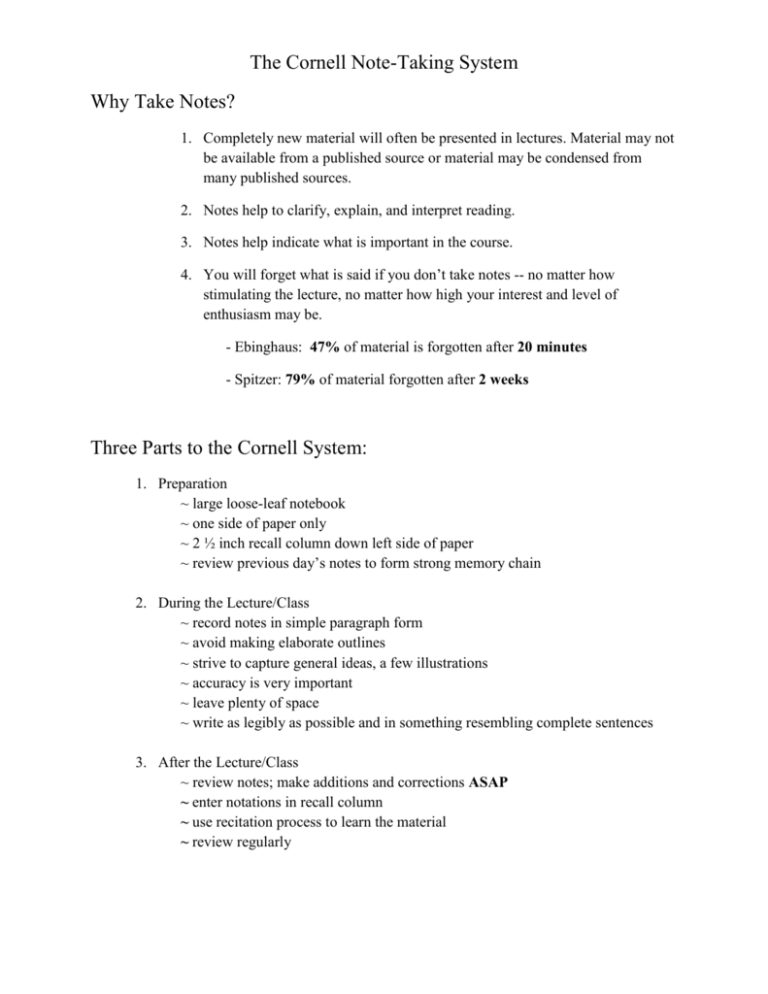
The Cornell Note-Taking System Why Take Notes? 1. Completely new material will often be presented in lectures. Material may not be available from a published source or material may be condensed from many published sources. 2. Notes help to clarify, explain, and interpret reading. 3. Notes help indicate what is important in the course. 4. You will forget what is said if you don’t take notes -- no matter how stimulating the lecture, no matter how high your interest and level of enthusiasm may be. - Ebinghaus: 47% of material is forgotten after 20 minutes - Spitzer: 79% of material forgotten after 2 weeks Three Parts to the Cornell System: 1. Preparation ~ large loose-leaf notebook ~ one side of paper only ~ 2 ½ inch recall column down left side of paper ~ review previous day’s notes to form strong memory chain 2. During the Lecture/Class ~ record notes in simple paragraph form ~ avoid making elaborate outlines ~ strive to capture general ideas, a few illustrations ~ accuracy is very important ~ leave plenty of space ~ write as legibly as possible and in something resembling complete sentences 3. After the Lecture/Class ~ review notes; make additions and corrections ASAP ~ enter notations in recall column ~ use recitation process to learn the material ~ review regularly Five R’s of Effective Note-Taking: 1. 2. 3. 4. 5. Record Reduce Recite Reflect Review Popular Myths About Note-Taking: 1. Note-taking interferes with listening, I can learn more just by listening to the lecture. (NO!) 2. Listening and comprehension are aided more by taking notes on the main ideas only, not full detailed notes. (NO DIFFERENCE!) 3. For long range remembering, just listening is better than taking notes. (NO!) 4. The very act of taking notes, putting the ideas in writing, helps you remember them. (NO!) 5. Just taking notes is sufficient; there is no need to review. (NO! Students who review tend to remember 1 ½ times more than students who don’t.) 6. It doesn’t matter whether you read first or hear the lecture first as long as you actually do both. (NO!) Pelz-Pelz-Stritmater study indicates significantly better performance after 48 hours delay when material is read before lecture. 7. Taping lectures is better than taking notes. (NO! You cannot review tapes quickly, highlight main ideas, and there is no recitation.)

